European Digital Markets Act (DMA) enforcement, Consent Mode and Consent Management
UniConsent
Table of contents
Since its enforcement in March 2024, the Digital Markets Act (DMA) has mandated strict regulatory measures for major online platforms. This legislation emphasizes user privacy and fair competition, necessitating enhanced consent mechanisms. Google's Consent Mode and tools like the UniConsent CMP are critical in this landscape. Consent Mode allows businesses to adapt how Google's tools function based on user consent, ensuring compliance. Meanwhile, CMPs like UniConsent manage user consents efficiently, aligning website operations with both the DMA and GDPR, safeguarding user data while maintaining operational effectiveness.
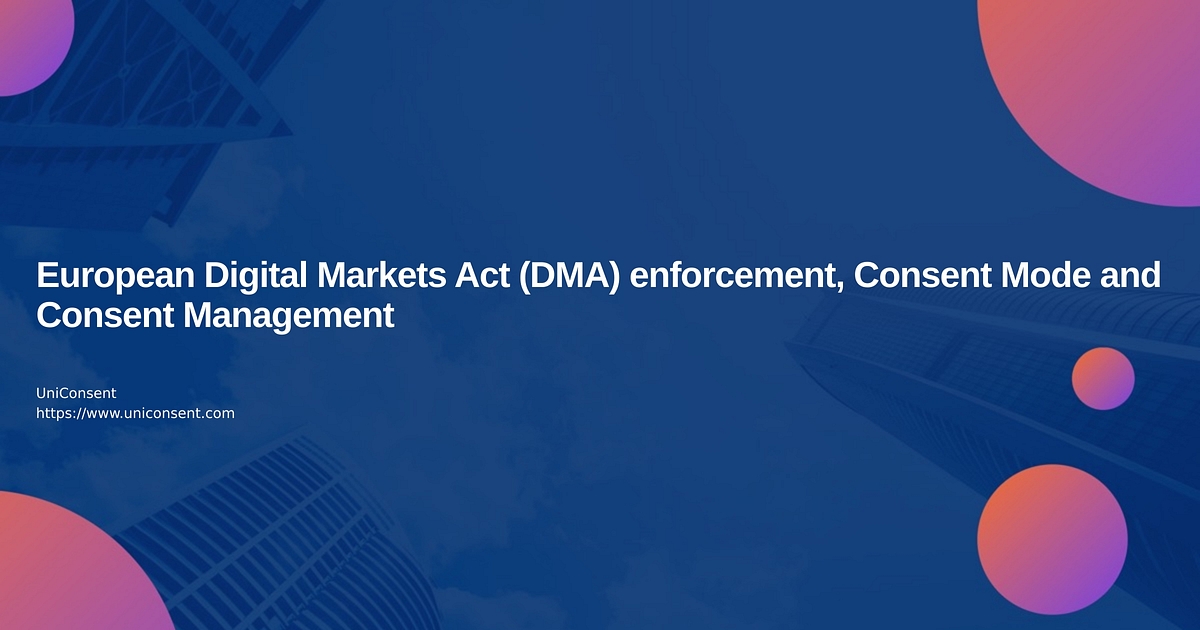 European Digital Markets Act (DMA) enforcement, Consent Mode and Consent Management
European Digital Markets Act (DMA) enforcement, Consent Mode and Consent Management
Digital Markets Act (DMA) enforcement
The implementation of the Digital Markets Act (DMA) brings significant changes for websites using digital marketing tools like Google Analytics, Google Tag Manager, and Google Ads. Here's an extended discussion on the necessity of Consent Management Platforms (CMPs) such as UniConsent in this new regulatory environment:
Enhanced Compliance with Privacy Laws
With the DMA, alongside the General Data Protection Regulation (GDPR), websites must manage user consents more meticulously. CMPs are instrumental in ensuring that data collection and handling practices are transparent and lawful, preventing any breaches of privacy laws.
Building User Trust
A CMP helps websites show their commitment to protecting user privacy. This transparency builds trust, enhancing user relationships and improving the overall reputation of the website.
Integration with Google Services
Services like Google's require integration with systems that manage user data according to legal standards. CMPs enable this integration, ensuring that all data transfers and processing activities comply with the DMA and GDPR.
Operational Efficiency
Automating the consent management process through a CMP minimizes the risk of errors and saves significant time, which is crucial for businesses managing consents across various platforms and regulatory requirements.
Google's Consent Mode v2
Google has updated its consent management tool to Consent Mode v2, which allows websites to adjust how Google services function based on user consents. This tool supports more granular control over data usage, crucial for compliance with stringent privacy laws like the DMA. Integrating this tool with a CMP like UniConsent ensures that user preferences are accurately captured and respected in all interactions, bolstering compliance and enhancing user trust.
Adopting a CMP is no longer just about compliance; it’s about ensuring sustainable business operations in a digitally regulated world. By using tools like UniConsent, websites can navigate the complexities of modern privacy laws effectively, maintaining the trust of their users while continuing to leverage essential digital marketing tools responsibly. This strategic approach is vital for any business aiming to thrive in the digital economy under the new regulations introduced by the DMA.
Websites and apps use UniConsent's consent management software because it's designed to be lightweight and fast-loading, making it ideal for high-traffic environments. This efficiency ensures minimal impact on site and app performance, which is crucial for maintaining user experience. Additionally, its effective management of cookie consents helps businesses comply with privacy regulations like the GDPR and the DMA, ensuring legal adherence while respecting user privacy preferences.
About UniConsent
UniConsent is a part of Transfon User Experience Platform that serves tens of millions of users per day to provide a seamless privacy experience for both users and publishers in the age of post GDPR. Contact us to know more: hello@uniconsent.com
Leading Consent Management Platform
Compliant with GDPR, CCPA, COPPA, LGPD, PECR, PDPA, PIPEDA, and more.
Activate Google Consent Mode UniConsent to enhance the accuracy of your Google Analytics and Google Ads conversion data.
Set up Google Consent Mode →Get started to make your website and application compliant for EU GDPR, US CPRA, CA PIPEDA etc
Sign upConsent Management Platform Resources
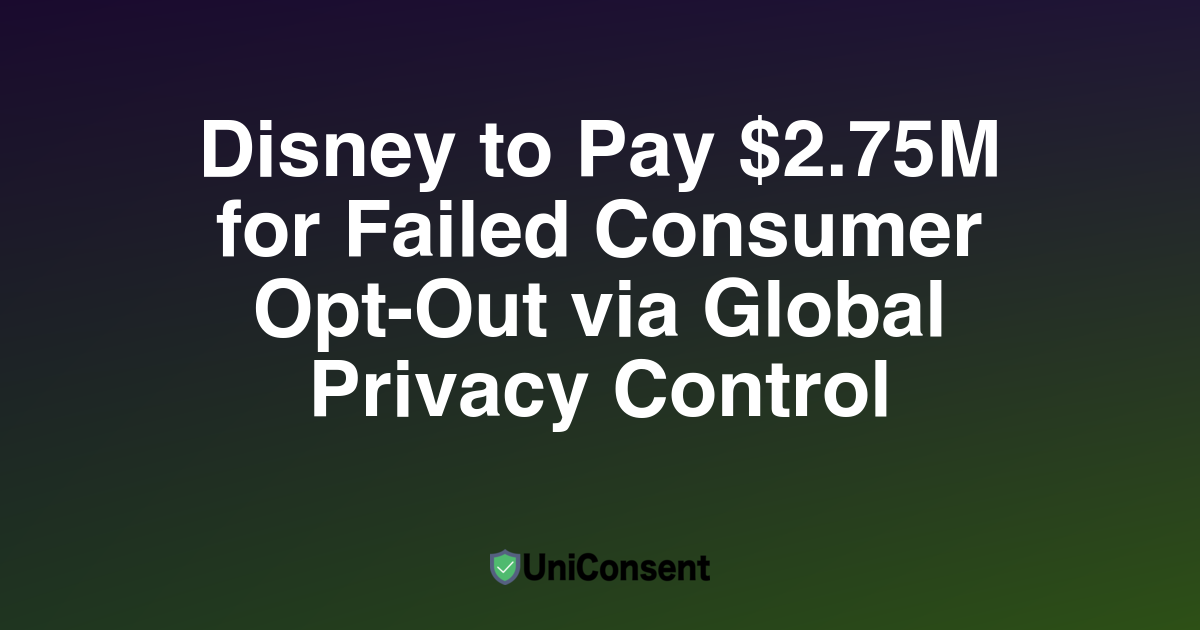
US CCPA: Disney to Pay $2.75M for Failed Consumer Opt-Out via Global Privacy Control
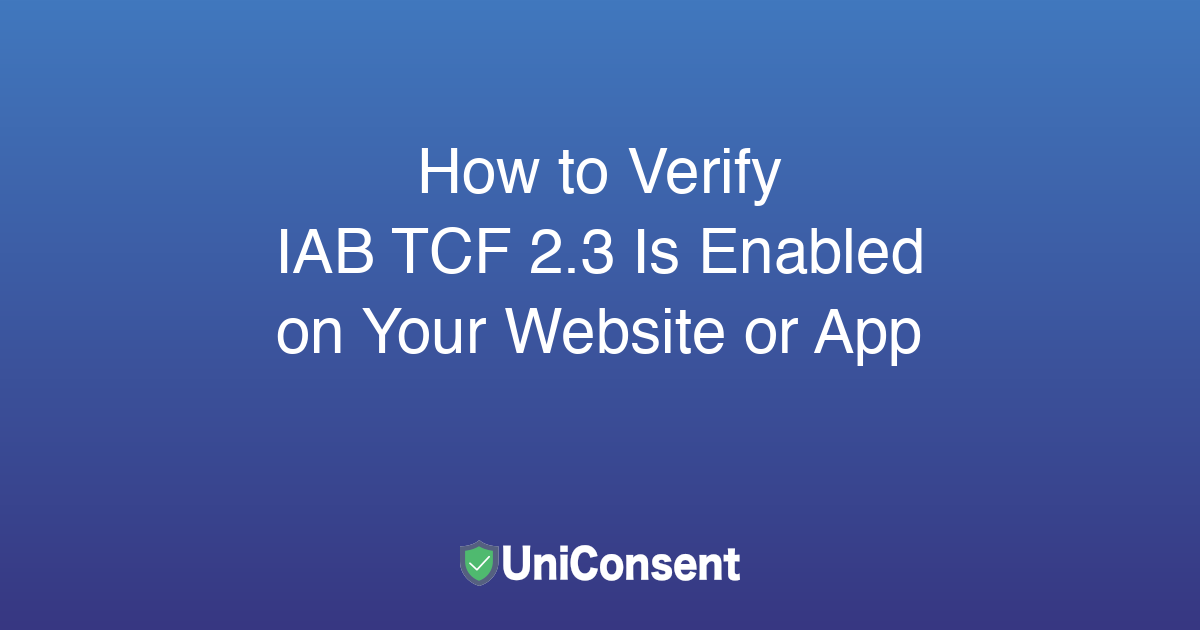
How to Verify IAB TCF 2.3 Is Switched On Your Website or App
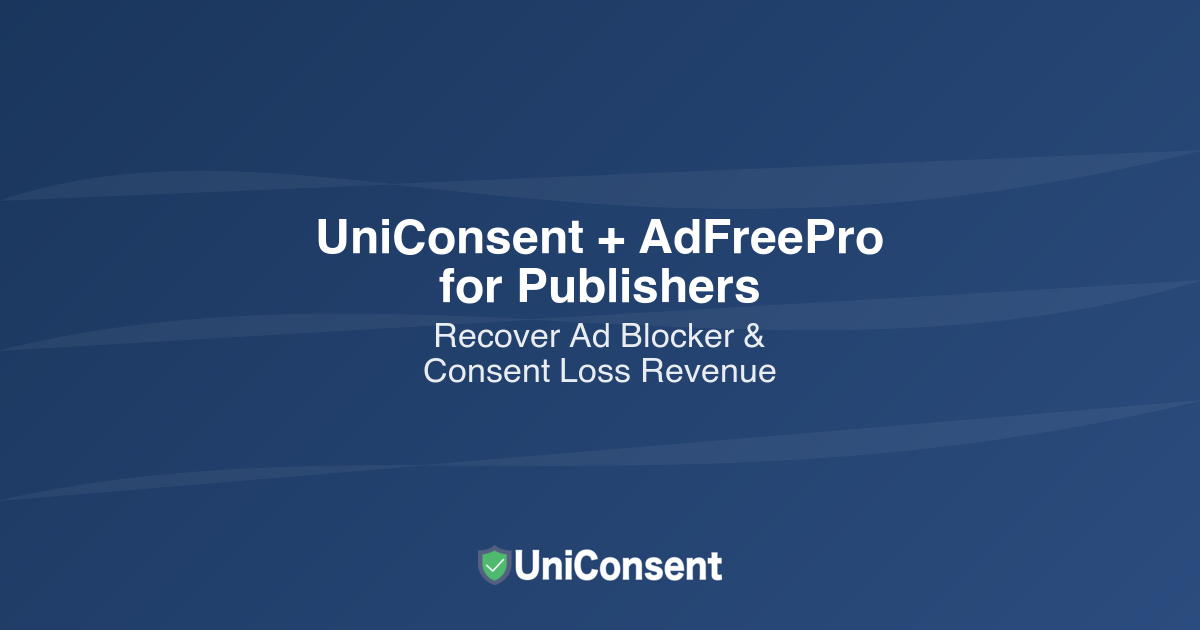
How to Recover Revenue Lost to Ad Blockers and Consent Rejection in 2026
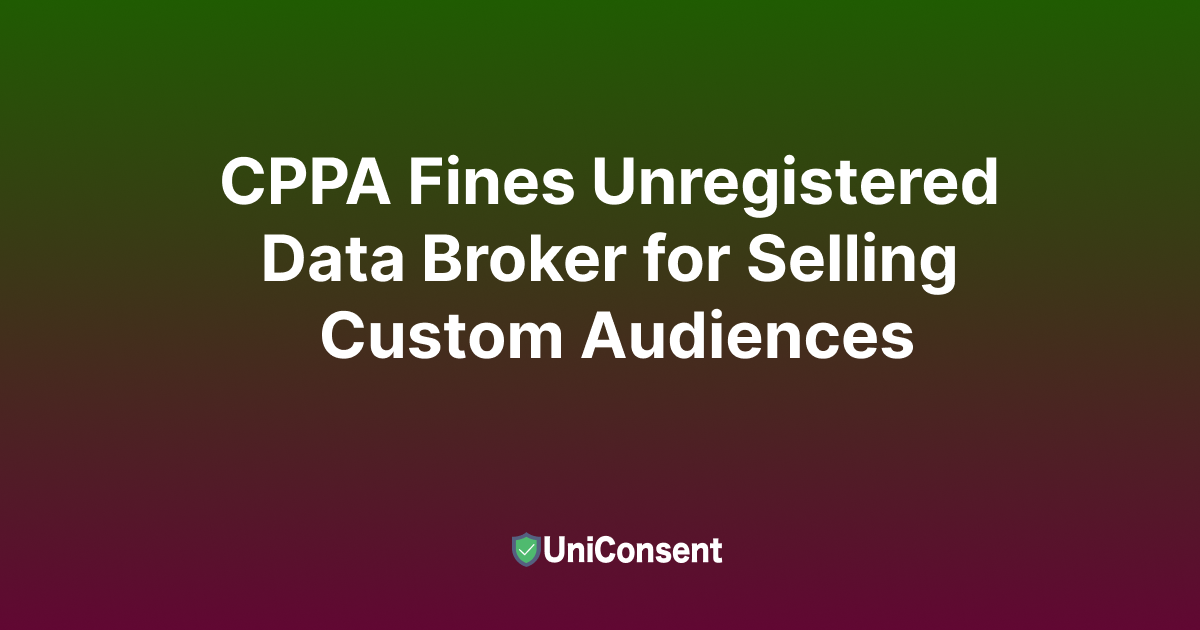
CPPA Fines Unregistered Data Broker for Selling Custom Audiences
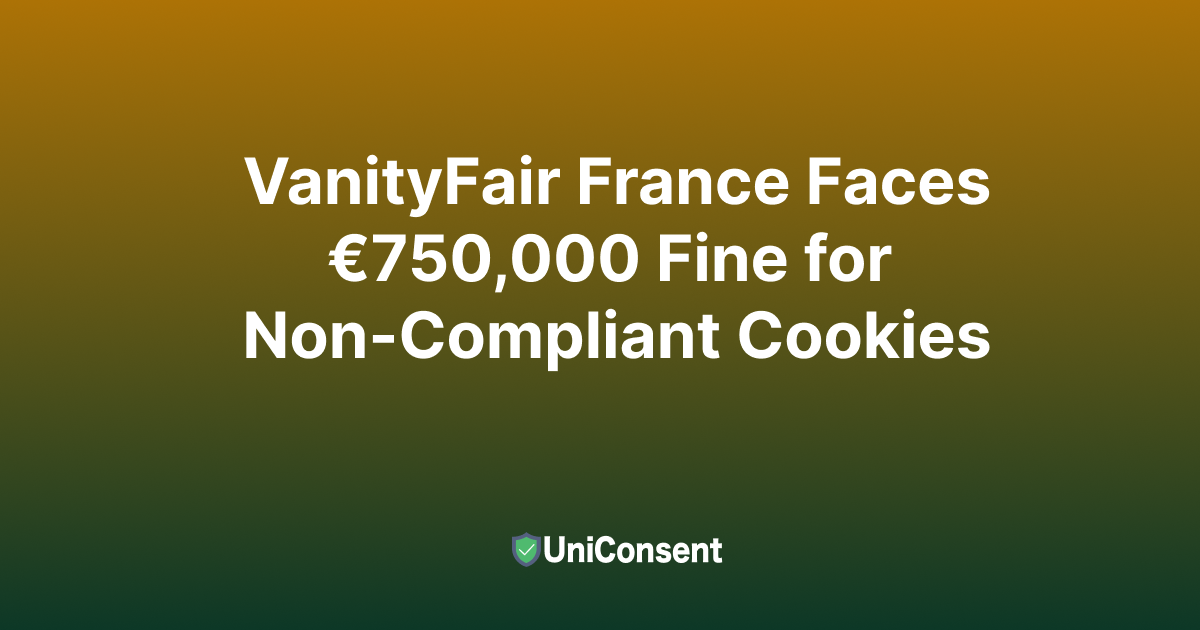
VanityFair France Faces €750,000 Fine for Non-Compliant Cookies
UniConsent CMP is Certified as an App-Ready Partner of Google
Get started to make your website and application compliant for EU GDPR, US CPRA, CA PIPEDA etc
Sign up